
Onuchic wins top Biophysical Society honor
José Onuchic wins the 2023 Founders Award presented by the Biophysical Society.

Onuchic wins top Biophysical Society honor
José Onuchic wins the 2023 Founders Award presented by the Biophysical Society.
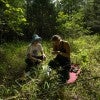
Can fungi help Texas’ grasses cope with climate change?
Rice biologists are using Texas as a living lab to study how symbiotic fungi help grasses tolerate drought.
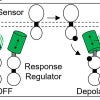
Glowing tags reveal split-second activity of pathogenic circuitry
Rice bioengineers have created the first tool for observing the real-time activity of biology’s most ubiquitous signal-processing circuits.

Reconstructing ice age diets reveals unraveling web of life
Rice-led research published in Science offers a clear picture of the consequences of land mammal declines on food webs.
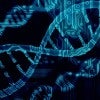
Biomedical, data science training wins new grant
The Rice University NLM Training Program in Biomedical Informatics and Data Science wins a $4.16 million National Library of Medicine grant.
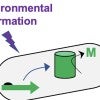
Rice team eyes cells for sophisticated data storage
Rice University receives National Science Foundation support to turn living cells, starting with bacteria, into random-access memory devices. These will be able to store and report data about their environments.

Rice experts available to discuss 5th anniversary of Harvey
As the fifth anniversary of Hurricane Harvey approaches, Rice University experts are available to discuss the storm’s ongoing impact.
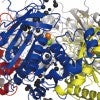
Rice models moving ‘washers’ that help DNA replicate
Rice researchers model a key mechanism by which DNA replicates. The study could help identify new targets to treat disease.

Team led by Rice’s Saltz wins grant to examine environment’s impact on fruit flies
Rice University researcher Julia Saltz and two co-principal investigators have received a $1.4 million grant from the National Science Foundation to investigate and model the underlying factors of genetic variation in trait development in fruit flies across environments and over generations.

VegSense makes sense for forest studies
Rice ecologists have created open-source software to rapidly gather field data with Microsoft’s mixed reality headset.
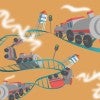
Synthetic tools conduct messages from station to station in DNA
Bioengineers used deactivated Cas9 fusion proteins to synthetically control gene expression and reveal new details about natural processes in human cells.
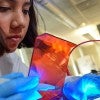
Hidden genes may be tapped for new antibiotics
Rice University bioscientists learn to trigger “silent” gene clusters in bacteria that could be rich sources of new antibiotic candidates.
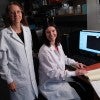
Researchers discover new leukemia-killing compounds
Researchers from Rice and MD Anderson Cancer Center have discovered potential new drugs for treating leukemia.
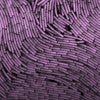
Rice bioengineers are shining light on bacterial stress
Rice bioengineers are ready to shine a lot of light on bacteria’s genetic response to stress.
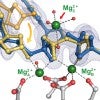
Crystal study may resolve DNA mystery
Rice University bioscientists have uncovered a tiny detail that could help understand how DNA replicates with such astounding accuracy.